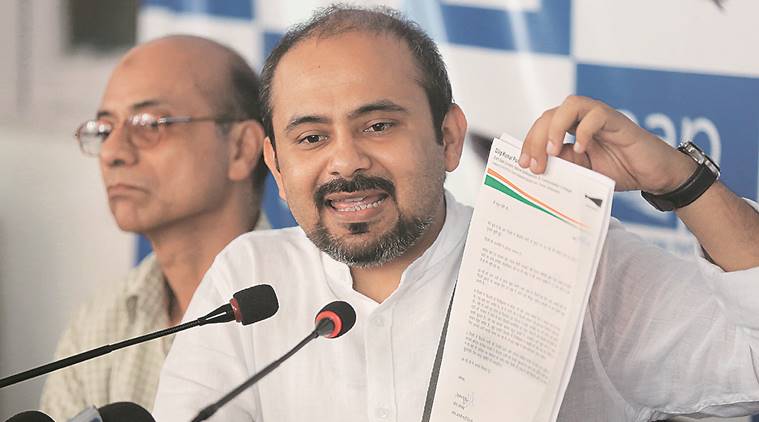 He is MLA from Timarpur
He is MLA from Timarpur
Soon after the nationwide lockdown was announced, a text message carrying the contact numbers of prominent AAP leaders and MLAs went viral on WhatsApp and other social media platforms.
The first number on the list, drafted in no particular order, was that of Timarpur’s first-time MLA Dilip Pandey, the Aam Aadmi Party’s former Delhi convenor.
“What followed was a deluge of calls. I had the option of not using this and switching to an alternate number, but that would not have been appropriate. But it wasn’t humanly possible to respond to so many calls. So I decided to start responding via WhatsApp and text,” said Pandey.
Many other AAP leaders, for that matter even BJP and Congress politicians, are also reaching out to people in distress. AAP’s Rajya Sabha MP Sanjay Singh is running a community kitchen and distributing food kits on a daily basis from his official residence in North Avenue.
However, over the weeks, Pandey has emerged as the face of AAP’s instant grievance redressal mechanism, with the party’s social media team also prominently projecting his interventions through tweets and memes.
Recently, he intervened when a video of an auto driver, in tears due to financial distress, went viral. The IT professional-turned-politician, who spent years abroad before joining the India Against Corruption movement, credits his small group of volunteers, brought together after his number got widely circulated, for addressing grievances.
The AAP’s national social media team also forwards complaints to the 39-year-old and his team. “In the team, there are two people who have been working with me for several years now. They take care of 35 constituencies each. The advantage is that everyone knows them. So when they reach out to a particular MLA or any other person, their complaints are registered. Impression yehi hota hai ki Dilip bhaiya ka call hai. Plus I had my own network which I had put in place during my time as the state convenor. That also helps,” said Pandey.
The MLA agrees that such instant solutions carry the risk of letting systemic faults go unaddressed. “The other day, there was an hour-long delay in getting an ambulance for a patient. The SDM was at fault and should be acted against. But this is a time when we need to prioritise. We need to understand every individual is stretched to their limits,” he said.
On March 29, Pandey posted a tweet: “If u find anyone hungry in Delhi, then share details… Use hashtag #DelhiHungerSOS and I will try and get MLA to help you.”
“By that time, many people had started thanking me for intervening. So someone suggested that I should tap into my Twitter network as well,” he said, adding that following up on a complaint is among the biggest challenges as that involves multiple individuals including area MLAs and volunteers.
“See, in many cases, people are deprived of government benefits due to lack of ID cards. There are people who still lack Aadhaar cards. We are trying to fill that gap,” Pandey, who grew up in a village called Zamania near Varanasi, said.
Asked about the extent of distress in the city, Pandey said that above anything else, “uncertainty and insecurity” were two factors troubling a large number of people. “Logon ko lag raha hai abhi income nahi hai, ek mahinee baad bhi rahega ki nahi. Where will the food come from then? Ek baar jisne bhookh mehsoos ki hai, wo samjhenge inke dard,” he said.